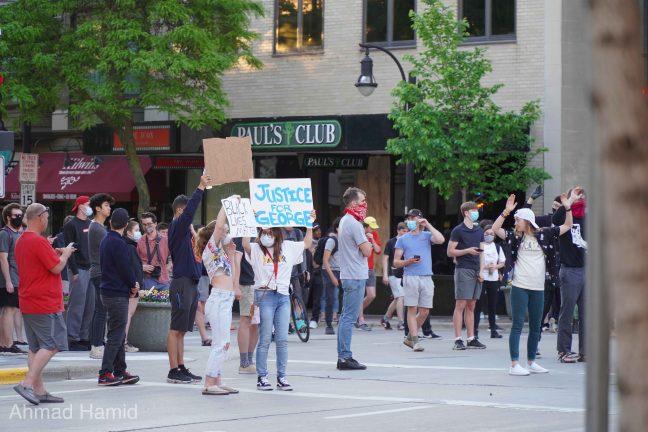Derek Chauvin was convicted of second-degree unintentional murder, third-degree murder and second-degree manslaughter in the State vs. Chauvin trial on Tuesday around 4 p.m. The decision was unanimous.
Chauvin faced three charges — second-degree unintentional murder, third-degree murder and second-degree manslaughter and was found guilty on all accounts. The announcement that a verdict had been reached went out around 2:30 p.m.
The prosecution moved to have Chauvin’s bail revoked, and Judge Peter Cahill granted the motion. Chauvin was then handcuffed in the courtroom and taken into custody by the Hennepin County Sheriff’s Office, according to the New York Times.
Prosecutors and the defense in the trial made their closing arguments Monday before the case went to the jury for deliberations. The New York Times reported the jury deliberated for around 10 hours before deciding whether to convict Chauvin.
According to NBC, 45 witnesses were called to the stand during the trial — 38 from the prosecution and seven from Chauvin’s defense.
The prosecutors argued that Floyd died by asphyxia after Chauvin kneeled on his neck for nine minutes and twenty-nine seconds. The defense argued that Chauvin acted as a reasonable police officer and said Floyd’s death resulted from other possible contributing factors, including heart problems and drug use, according to the New York Times.
The defense will most likely appeal, after the judge in the trial criticized recent comments by Rep. Maxine Waters, of California. This could lead the verdict to be overturned.
Sentencing for Chauvin will happen eight weeks from now, Judge Peter Cahill said when reading the verdict.
Crowds gathered throughout Minneapolis to celebrate the verdict.
In preparation for the final verdict in the trial of Derek Chauvin for the murder of George Floyd, the City of Madison held a press conference on Monday. Police Chief Shon Barnes and other community leaders addressed the public about the Madison Police Department’s plan to respond to any peaceful protests in response to the verdict.
Barnes released a statement after the verdict.
“The American justice system has not always served all of her people well and the death of George Floyd is a shocking example of where we can fail each other. As an officer of the law, I believe that today justice has prevailed,” Barnes said in the statement. “We hear you; this moment matters.”
Specifically, the press conference Monday addressed criticisms of the use of chemical irritants during last summer’s protests.
National Guard called during second night of George Floyd protests
After Floyd’s killing in late May, students and community members attended protests lasting weeks in Madison, during which MPD deployed chemical irritants such as tear gas and pepper spray, and Gov. Tony Evers called in the National Guard.
Yesterday, UW Chancellor Rebecca Blank sent out an email statement to all students, faculty and staff outlining resources students can seek on campus during this difficult time, including mental health support and “processing spaces,” or Zoom meetings where students can talk through what they’ve been dealing with, open 24-48 hours after the verdict.
Blank also shared a set of initiatives UW has undertaken, including UWPD’s Equity Initiative, which reforms many of its policies to align the department with the goals of the national #8Can’tWait standards, the Understanding and Reducing Inequalities Initiative, which funds 15 research projects to “generate actionable knowledge to reduce racial inequities in the U.S.,” the Social Justice Hub and the Frank J. Remington Center, which is dedicated to serving low-income and incarcerated people, along with other stakeholders.
On Twitter, the UW BIPOC Coalition criticized UW’s practice of offering a “processing space” without allowing students assignment exemptions or putting together more concrete policies to alleviate academic burdens during this stressful time.
“@UWMadison’s answer to every tragedy and traumatic incident faced by students of color is to offer “processing space,” the tweet read. “That’s not enough. Processing space without continued care is pointless.”


